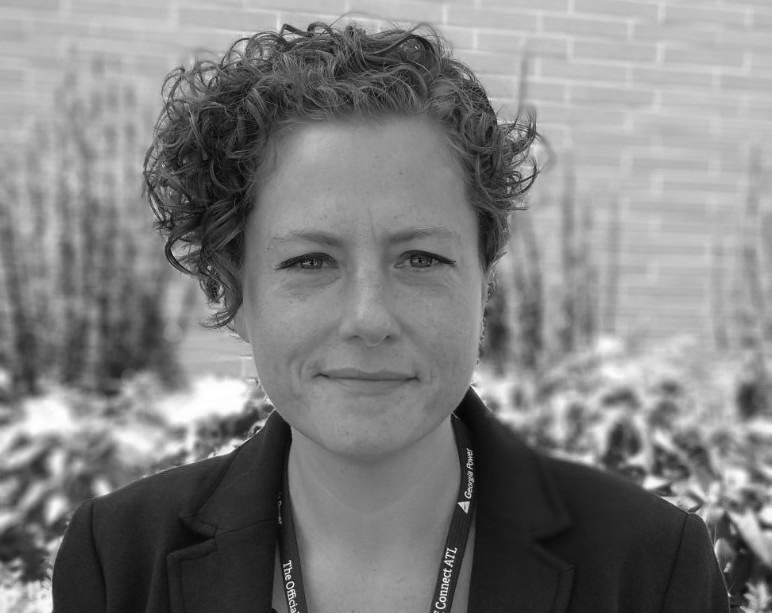
When delivering a speech on the importance of gender parity in micromobility last year (spoiler, we’re more than half the population so it’s legitimately stupid not to care), I finished up by politely requesting that a senior white man in the industry pick up the diversity, equity and inclusion (DEI) slot next time around.
We already have plenty of leaders in mobility, and the data shows that most of these leaders are indeed white men. The recent Diversity in Cycling report from The Bicycle Association spoke to the fact that "women make up 49% of the UK workforce. Yet in the UK cycling industry, just 8% of workshop-based roles, and 19% of customer-facing roles, are occupied by women". It’s you chaps I’m speaking to again: turns out, it’s just as much your responsibility to tackle DEI as those of us in the industry who are referred to by identity rather than roles. The call to action is a shared responsibility to fix the issue of underrepresenting and – worse - underserving huge portions of the population.
Micromobility is unarguably successful when stakeholders across the public, private and third sectors are pulling in the same direction. The industry has made huge strides on safety with this mindset. Progress on technology, data capture and operations has come through collaborating on achieving best possible outcomes. Despite rich evidence of the benefits of collaboration, and drawing on others’ expertise, this approach has not yet been applied to efforts to broaden participation.
Increasing access
There is an experienced, informed, well-practised, evidenced and data-rich global well of knowledge, that we in the UK are choosing to miss out on. If you’re an operator, transport authority, advocacy group or consultancy, and are short on ideas to improve the equity and social impact of your services, open up those mental borders.

Let’s start with our friends in the US. Last year the Better Bike Share Partnership, which was formed to “increase access to, and use of, shared micromobility systems in low-income and BIPOC [Black, Indigenous, or people of colour] communities”, funded 10 programmes focused on providing historically underserved groups access to micromobility.
The funding was from a collaborative body, the JPB Foundation, set up by the City of Philadelphia, the National Association of City Transportation Officials (Nacto) and the PeopleForBikes Foundation.
Importantly, JPB is not exclusively focused on dispensing funding; it has also created an abundance of research and resources in order to share knowledge and best practice.
Most recently the Arrested Mobility Report has been widely circulated among micromobility folk. It highlights: “For Black Americans and other people of colour, travelling by foot, bicycle, or e-scooter can be fraught with obstacles and risks that reflect structural racism and White supremacy. Together, these obstacles form a framework of arrested mobility: a set of transportation-related policies and practices across jurisdictions that limit mobility, opportunity, and access for Black Americans and other people of colour.”
BIPOC communities in the US certainly face unique barriers and structural challenges - though for many people of colour in the UK, reading this report was not as shocking (and was far more relatable) than you might assume.
The current requirement for driving licences to use shared e-scooter services in the UK is significantly exclusionary: 76% of White people have a licence – the highest percentage out of all ethnic groups; compared with 53% of Black people – the lowest percentage.
In the UK, great efforts are being made, largely by individuals in each sector. The recent research published by Akwesi Osei and Rachel Aldred, You always think about what other people be thinking: Black men and barriers to cycling in London, ought to be required reading for all involved in active travel. The title alone shines a light on the reality of what it is to be racialised and moving in the UK.
Being ‘multiply marginalised’
Layer in intersectionality, and a search for scientific and/or academic work that seeks to understand the experiences of those who are ‘multiply marginalised’ (a term that’s stuck with me from equalities designer and DEI changemaker Natasha Trotman), and the failure to act becomes starkly evident.
Several UK cities have proudly announced significant funding wins to deliver their active and sustainable transport goals. The recent capability rankings from Active Travel England champion those cities which are, seemingly, willing to act.
There’s a growing recognition across the industry and its collaborators that DEI is a vital component for industry growth. I recently joined the independent advisory board for the aforementioned Bicycle Association of Great Britain’s three-year project to push for Diversity in the Cycling Industry. Many significant organisations have signed the pledge. But it has to mean more than just a DEI statement in companies’ policies and a tweet or two on the value of BAME (Black, Asian and minority ethnic) staff and their lives.

If these commitments and promises are not connecting with the communities they claim to be interested in serving, then something is wrong. And until we start unpicking that, we’ll stay surprised when the everyday experiences of people in these groups are shared.
There’s an abundance of organisations, in each sector, well placed to participate in, lead or just propose a collaborative approach to establishing such investment into equitable programmes.
Collaborative bodies for regional transport authorities, such as the Urban Transport Group, have called for more flexibility in regulation, to test new approaches. Perhaps this recommendation can go further and highlight the need to look at the current regulatory framework and who is being excluded from participation.
There are also many more membership and grant-fuelled organisations and charities that reach cross-sector - such as ForuMM or CoMo UK which have the insight, expertise and network to push this forward. It's a task for the many, and there's enough work to go around.
Bold commitments
A number of consultancies, banks and investors stand to greatly benefit from the growing micromobility industry – and many of them launched DEI manifestos in the spotlight that was the Black Lives Matter movement. Some make bold commitments to supporting, and sometimes even explicitly mentioning funding, historically underserved communities in the climate action and sustainability space. If those companies are reading this, I’ve got a long list of introductions I’d be delighted to make.
In the UK, we are blessed with a rich tapestry of grass-roots community organisations, advocacy groups and charities working exceptionally hard to make a positive impact.
But thanks in part to the politically stoked ‘culture war’ in the media about sustainable and active transport, campaigns and organisations are often forced into rooting themselves in somewhat binary expressions of identity in order to make progress.
An intervention that looks like good DEI practice to one group may not address another in the slightest. This fractional approach to address the industry via identity politics has the potential to keep us in the realm of vague commitments and small-step actions that look decent on a press release, all while continuing to fracture the third sector’s collaborative power.
Yet this power of the many is a necessity to enact the significant systematic shifts needed to deliver the social, health and environmental benefits of sustainable transport.
Accessible funding
Collaborations such as the Disabled Citizens’ Inquiry, delivered via partnership between Transport for All, Sustrans and funded by Motability, are testament to tangible, impactful output being achievable from properly funded and collaborative approaches across sectors.

There are indeed opportunities for grant funding, though if you’re a young start-up, community group or even an already-stretched team managing a complex micromobility service, Horizon or UKRI funding applications might be a bit of a stretch.
We’re in desperate need of low-barrier, accessible funding routes that progress a cohesive and attainable mission for improving DEI, social value and public good in our transport systems.
We urgently require long-term strategic direction and guidelines from a national level and investment into the skills and resources necessary for the awareness, ownership and delivery of local decarbonisation, clean air and place-making ambitions that intersect with progressing equitable sustainable transport systems.
Active Travel England (ATE) is investing £32.9 million to create a ‘national network of experts’. Let’s see what that can do.
It’s a big step forward to invest in developing the public sector as joint value creators in reaching these impact goals. However, it’s overshadowed by short-sighted cuts recently made to the national active travel budget. The UK Department for Transport’s own analysis shows that active travel investments have an expected ‘benefit-to-cost’ ratio of £5.62 for every £1 spent. This ratio means the budget cut could end up costing £2.1 billion to the British taxpayers in the longer term.
Short-sighted cuts
The Walking and Cycling Coalition, made up of private and third-sector organisations, has called for this decision, described as ‘a backward move for the economy’ to be reversed. It seems there is still a way to go before we are all singing from the same hymn sheet when it comes to the value of sustainable transport.
But it’s not only the US moving at a greater speed than the UK. Mexico City has made significant investment into cycling infrastructure that has been shown to correlate with the steady growth of local bike-sharing system Ecobici.
A 2021 report from the Coalition for Urban Transitions and the University of Leeds, funded by UK government, said: “Looking to the future, Mexico City has announced an 80/20 approach that will dedicate 80% of spending to walking, cycling and mass transport options, and only 20% to private vehicles”.
The European Parliament continues to make big leaps in pro-cycling policies that explicitly aim to grow the industry across its territories.
Benefits of diversity
Piles of evidence show that diverse teams and companies simply do better. Moreover, if you want to procure a shared mobility system, or operate one in the UK and Ireland, you ought to put at least 10% of your efforts into delivering social value. The Social Value Act 2012 requires the public sector to ensure that the money it spends on services “creates the greatest economic, social and environmental value for local communities”.
It’s worth noting that efforts supporting the expansion and adoption of shared services will very likely also support private adoption. If regulation is right-sized we may also see the rapid development of new innovations and vehicles. For shared operators to be competitive and financially viable, the economies of scale and value propositions must deliver tangible social value and public good to remain in operation.

Shared micromobility companies will need to decisively reject the ‘move-fast-break-things’ sensibility and move towards long-term sustainable growth. We didn't go from a horse and cart to a Tesla in a few short years – so why would we expect this of an entirely new class of vehicles commercialised though hugely varied business models?
The value proposition of shared micromobility becomes affordability, convenience, availability: no need to worry about a parking ticket or a broken window. I recognise this is a lot less exciting than being the best, first, biggest or world-changing - I can almost hear the pillow screams of micromobility founders and their unicorn-hunting investors…
There is far more work to be done to ensure these social-value requirements are robust, realistic and legitimately deliverable. A greater understanding is needed of the frameworks and measures as core contract requirements. Equal to the bidder, the body procuring the system needs the right skills to support delivery, as success will often be reliant on integration with the wider public realm across transport, housing, urban development, community events, local business and more.
Perhaps 10% of ATE’s expertise budget - £392,000 to be exact - could be committed to developing expertise on the delivery of social value.
A much smaller investment could fund the translation of the many document-based guidelines into a digestible curriculum for easier education and adoption. It would take even less money to help the grass roots and community groups who are living it daily, to develop those skills in the sector at large.
Raising the volume
I have no formal credentials to consider myself a DEI expert. I am a concerned contributor in mobility, who has cultivated a good grasp of where we’re lacking. I’ve gained this soapbox through lived experience, exposure and education - owing largely to a strong belief in partnership for the betterment of the industry, and a disposition to call-out wrongdoing where I see it. The fact that aspects of my identity qualify me as a go-to on DEI in the industry is a testament to the dire lack of investment into formal expertise.
As I'm here, and on my box, it’s worth clarifying that I'm not advocating for mass hiring of DEI leads to solve the problem. Between rampant redundancies, hiring freezes, constantly moving goalposts for delivery, huge cuts to government investment in active travel, and ever more elusive legislation - it’s probably a harder hire than ever.
But to raise the volume of voices from underserved communities, and to gain the many benefits of a real step-change in the identity of micromobility in the UK, we need to get everyone speaking on it, now.
ABOUT THE AUTHOR:
Georgia Yexley is a micromobility expert and inclusive active travel advocate, advising the public, private and third sectors on improving transport equity for all, through her company Loud Mobility












